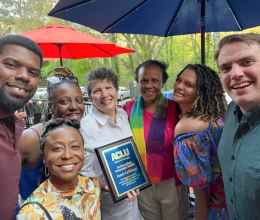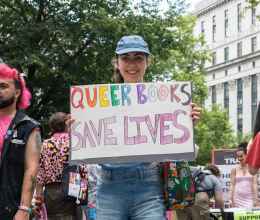
ACLU of Georgia: What the Masterpiece Cakeshop Decision Means for Georgia and LGBTQ Rights
By Sean J. Young, Legal Director of the ACLU of Georgia | June 6, 2018
This week, the Supreme Court issued a long-awaited decision in Masterpiece Cakeshop v. Colorado Civil Rights Commission, ruling in favor of a Colorado baker who refused to bake a wedding cake for a gay couple because of his religious beliefs. There are three important takeaways from the Court’s decision.
First, the Supreme Court’s ruling was based on exceedingly narrow, procedural grounds that are unique to this case. Specifically, the Supreme Court reversed because it believed that the Colorado Civil Rights Commission exhibited hostility to religion when one of its members described the baker’s faith justification as “one of the most despicable pieces of rhetoric that people can use.” The Court held that this hostility violated the Constitutional requirement, under the Free Exercise Clause, that governments refrain from exhibiting undue hostility towards religion.
The case was not only procedurally unique, but also unique in time. The Supreme Court emphasized that the baker’s refusal occurred in 2012, at a time when Colorado was not required to recognize same-sex marriages. But thanks to Obergefell v. Hodges, which legalized gay marriage throughout the country in 2015, that will never be the situation again.
Second, the Supreme Court went out of its way to emphasize that notwithstanding its ruling in favor of the baker, gay people must be treated with dignity in the public marketplace. The majority recognized that “[o]ur society has come to the recognition that gay persons and gay couples cannot be treated as social outcasts or as inferior in dignity and worth. For that reason the laws and the Constitution can, and in some instances must, protect them in the exercise of their civil rights. The exercise of their freedom on terms equal to others must be given great weight and respect by the courts.”
The Court further emphasized the danger that a broad ruling in favor of the baker may result in a “long list of persons who provide goods and services for marriages and weddings might refuse to do so for gay persons, thus resulting in a community-wide stigma inconsistent with the history and dynamics of civil rights laws that ensure equal access to goods, services, and public accommodations.” Indeed, eight out of nine Justices ultimately signed on to these fundamental principles, as reflected in the majority decision and in Justice Ginsburg’s dissent.
Third, the Supreme Court emphatically did not embrace the theory that businesses have a blank check to discriminate against gay people under a twisted theory of the First Amendment. Two years ago, Governor Nathan Deal rightly vetoed a so-called “religious freedom” bill that would have given businesses a license to discriminate and would essentially allow them to put up signs saying, “Your kind is not welcome here.” Nothing in the Supreme Court’s decision suggests that giving businesses a license to discriminate is constitutionally required.
Nonetheless, in Georgia, unlike Colorado, gay people remain unprotected under state laws. Georgia is only one of three states in the entire country that does not have a comprehensive civil rights law. The ACLU of Georgia will keep making the case for equal treatment of LGBT people until equal opportunity is the norm and the law in the state of Georgia.
Related Issues
Related content

SB 180 - "Religious Freedom" Restoration Act
March 13, 2024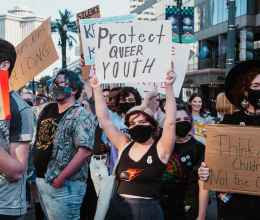
Legislative Recap: Five Bills To Watch Through the End of Session
March 8, 2024HB 936
February 22, 2024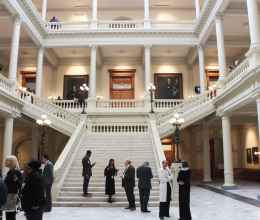
Legislative recap: Committee Passes Anti-LGBTQ+ Bill Without Taking...
February 16, 2024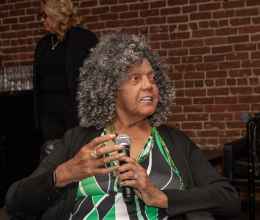
Stonewall activist Miss Major, ACLU of Georgia and Georgia Equality...
October 27, 2023Press Statement: Federal Judge Staying Preliminary Injunction...
September 6, 2023Federal Judge Issues Injunction that Restores Health Care for...
August 21, 2023